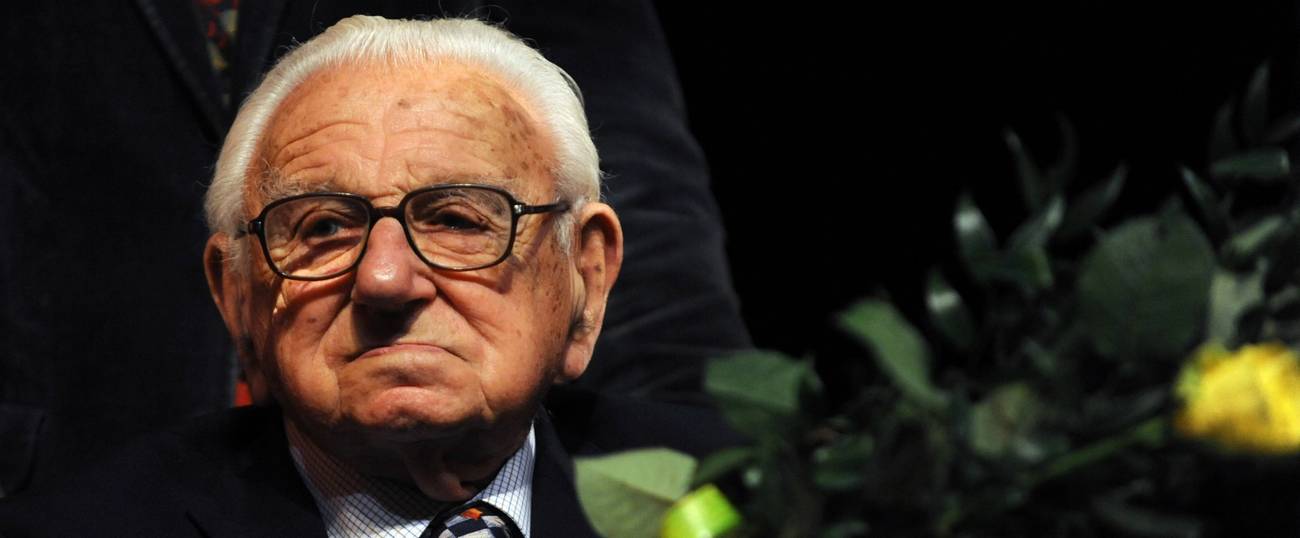‘British Schindler’ Dies at 106
Nicholas Winton rescued more than 650 children by organizing Kindertransports from Nazi-occupied Czechoslovakia to the U.K.




Sir Nicholas Winton, nicknamed the “British Schindler” for rescuing more than 650 children from Nazi-occupied Czechoslovakia through Kindertransports to the United Kingdom, died today at age 106, the BBC reports.
Winton was born in 1909 to German Jewish parents in London. In 1938, the 29-year-old Winton traveled to Czechoslovakia to visit a friend. It was there he witnessed how dangerous the conditions were increasingly becoming for the country’s Jewish population. The Guardian reports that in an interview with BBC Radio 4 last year, Winton explained he was fully aware of the urgency of the situation, thanks to information he received from the British Committee for Refugees from Czechoslovakia while Prague:
“I knew better than most, and certainly better than the politicians, what was going on in Germany. We had staying with us people who were refugees from Germany at that time. Some who knew they were in danger of their lives,” he explained.
When Winton returned home to London he set about organizing a series of trains to transport the endangered Czech children between the two cities. He successfully coordinated the arrival of eight of these trains, which carried the children across four countries. During those dangerous journeys Winton frequently had to bribe officials and forge documents.
Though Winton saved hundreds of children’s lives, he has said that his biggest regret was his inability to orchestrate the arrival of one last train, which was prevented from leaving Poland shortly after the country was invaded by the Nazis. The 250 children on that final train are “believed to have died along with 1.1 million of Czech Jews at Auschwitz,” according to the Guardian.
When the rescued children arrived in London, Winton worked to find each of them British foster homes. He searched for “families willing to put up £50 to look after the boys and girls in their homes,” the BBC reports. Last year, Tablet contributor Rafael Medoff wrote that Winton even reached out to President Roosevelt, requesting that the Unites States accommodate some of the refugee children.
“Perhaps people in America do not realize how little is being done and has been done for refugee children in Czechoslovakia,” Winton wrote in his letter to Roosevelt. “[T]here are thousands of children, some homeless and starving, mostly without nationality, but they certainly all have one thing in common: there is no future, if they are forced to remain where they are.” Winton went on to describe their destitution, and closed with the question, “Is it possible for anything to be done to help us with this problem in America?”
His request was rejected. “The Americans wouldn’t take any, which was a pity,” Winton said in an interview. “We could’ve got a lot more out.”
Despite his incredible wartime heroism, Winton never discussed his actions. The Guardian reports that it was only in 1988, when his wife Grete uncovered a scrapbook in their attic full of lists of children’s names along with letters from their parents, that it came to light. His family took the scrapbook to the producers of a TV show called That’s Life, where he was reunited, on air, with one of the children he had saved. Following that appearance, he continued to be contacted by and reunited with hundreds of “Winton children,” as well as their own children.
In 2002 he was granted knighthood by Queen Elizabeth II and last year he was honored by the Czech Republic, receiving the country’s highest accolade, The Order of the White, in a stately ceremony held last October.
Previous: ‘Britain’s Schindler’ to Receive Czech Honor
Related: Long-Lost Please to FDR Revives Question: How Could Europe’s Jews Been Saved?
Jas Chana is a former intern at Tablet.